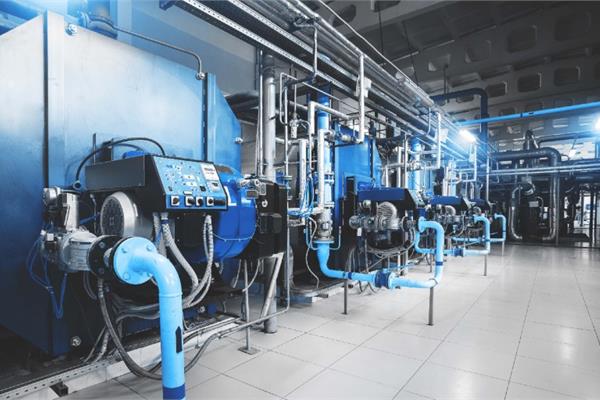
Cortec® Corporation has unveiled its new Boiler Egg(tm), a VpCI additive for corrosion protection of industrial water systems, which can reduce the risk of extra downtime, clogging, leakage, and shortened service life that comes from corrosion.
Bringing a boiler back online is a critical time for corrosion protection because of the higher threat from oxygen-rich makeup water flooding the system. Boiler Egg™ by Cortec provides a solution to the problem, by releasing a powerful dose of oxygen scavengers, protecting the main boiler area, and providing corrosion protection in other components—such as condensate, deaerator, and feedwater tanks—during startup.
Features and benefits of Boiler Egg
Cortec's Boiler Egg™ effectively
scavenges oxygen and passivates metal during the initial filling of makeup water after seasonal or long-term dry layup of boilers. It is pH neutral, non-hazardous by OSHA Standard (OSHA 29 CFT 1910.1200), biodegradable and easy to apply thanks to its
solubility properties, that release the active ingredients upon contact with water as the boiler is being filled. It
protects against the threat of oxygen pitting during the startup phase of a boiler when the makeup water is normally not pre-heated and the operating chemical program has not yet been implemented.
After Boiler Egg™ has been removed from its outer bag, it can be laid as it is in the boiler at the lowest point possible. When the boiler is put back into service, contact with water will dissolve the PVA bag, releasing the contents of the Boiler Egg™ and incorporating them into the makeup water. One Boiler Egg™ is designed to treat 1,000 gallons (3,800 L) of makeup water during the refilling process.
The Boiler Egg™ can be used together with the Boiler Lizard® as a complete preservation kit for dry layup of boilers, or it can be used on its own for applications where oxygen-scavenging and metal passivation are needed during the equipment startup phase.